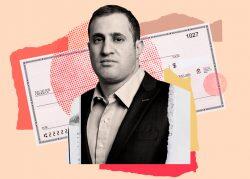Nextdoor’s stock-market debut has arrived, as the company is set to begin trading under the ticker KIND on Monday.
The local social networking app for neighborhoods recently announced its plans to go public through a special acquisition company backed by Khosla Ventures. The company made its stock market debut on Monday, according to the Wall Street Journal.
Khosla Ventures has valued Nextdoor at $4.3 billion, according to the Journal. The companies’ merger was expected to create almost $674 million in gross proceeds, including $270 million in private investments.
In October 2020, the proptech firm was targeting a valuation between $4 billion and $5 billion as it was evaluating going public.
Nextdoor makes money through ads and sponsored content, seeing remarkable growth during the pandemic. The company says it made $123 million in sales last year and is projected 47 percent year-over-year growth this year, followed by 40 percent in 2022. Nevertheless, the company is still in the red and is expected to lose $101 million in 2021.
The hyper-local platform includes news feeds and digital marketplaces. More people turned to the app amid the pandemic, as seen by the number of users that grew from 48 million in 2019 to 58 million in 2020. By the middle of this year, the app was up to 63 million users, the Journal reports.
“More people came to the platform during the middle of an emergency, but they came and they stuck around,” said Sarah Friar, Nextdoor’s CEO.
The company claims to be in one of every three American households, active in upwards of 280,000 neighborhoods across the globe.
SPAC deals offer an alternative to a traditional IPO. The companies have been the subject of mounting interest from major real estate players in the last year, notching Tishman Speyer, RXR Realty and Silverstein Properties’ Tal Kerret as new entrants with their own blank-check firms.
Smartlock maker Latch, buying platform Offerpad and transaction startup Doma are among the proptech firms to go public on the SPAC market in recent months.
Read more


[WSJ] — Holden Walter-Warner
